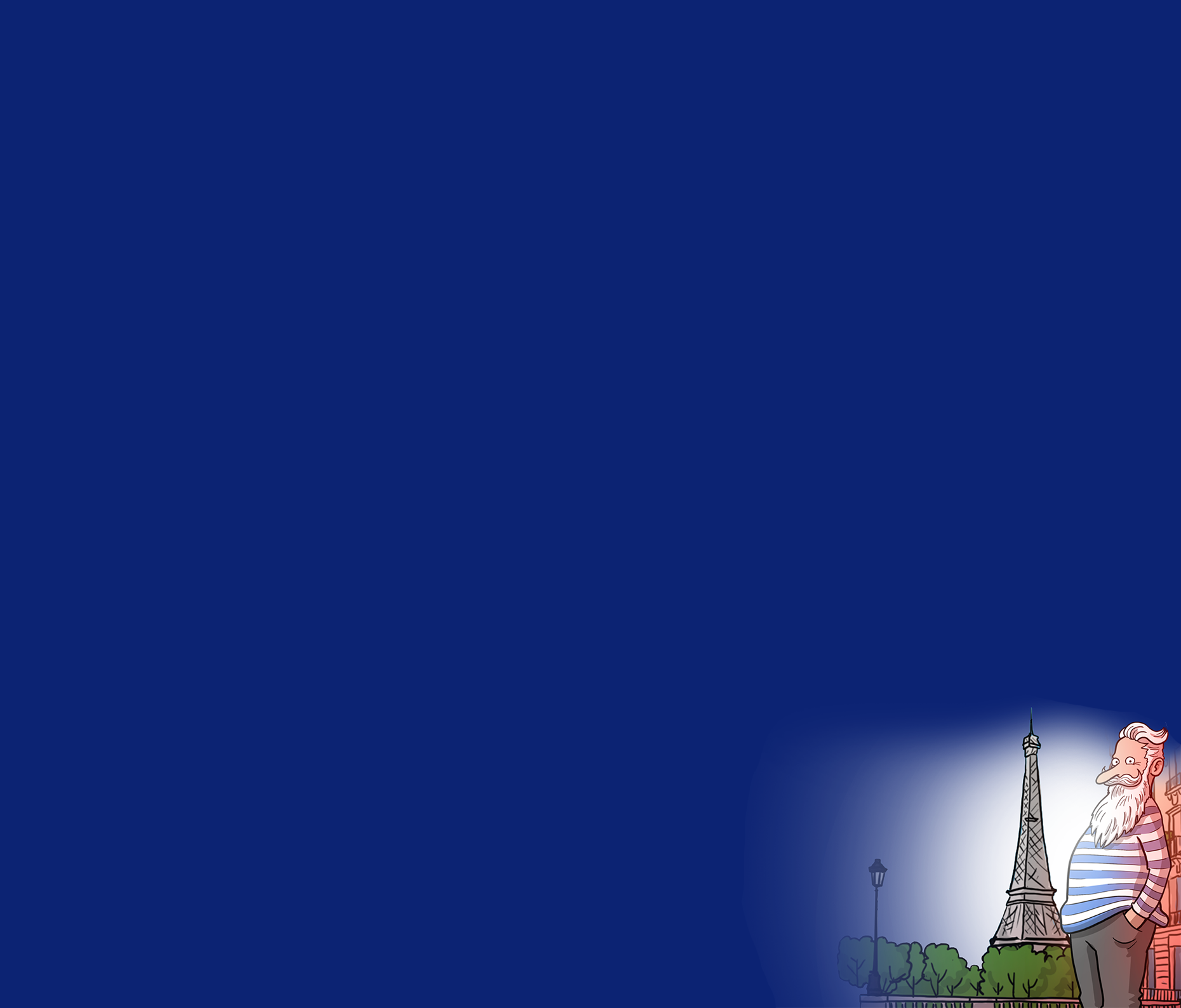The conditional present
To conjugate a verb into the conditional present, we use the same verb stem as the future and add the following endings: -ais, -ais, -ait, -ions, -iez, -aient.
| INFINITIF | FUTUR | CONDITIONNEL |
|---|---|---|
| Danser | je danserai | je danserais, tu danserais, il danserait, nous danserions, vous danseriez, ils danseraient. |
| Être | je serai | je serais, tu serais, il serait, nous serions, vous seriez, ils seraient. |
| Avoir | j'aurai | j’aurais, tu aurais, il aurait, nous aurions, vous auriez, ils auraient. |
| Pouvoir | je pourrai | je pourrais, tu pourrais, etc. |
The conditional in French is very similar to the English equivalent (using 'would'). We use it in the following situations:
• To express a wish: we use the conditional with verbs like vouloir, aimer, adorer or in expressions like ça me ferait plaisir (it would please me), ça serait bien de (it would be good to).
• To express a wish: we use the conditional with verbs like vouloir, aimer, adorer or in expressions like ça me ferait plaisir (it would please me), ça serait bien de (it would be good to).
J’aimerais tant sortir avec Victor ! I'd like so much to go out with Victor!
• To express a polite request: we use the conditional to make a request or suggestion more polite.
Vous auriez du feu s’il vous plaît ? (Would you have a light, please?)
• To give advice: we often use the conditional when suggesting something or giving advice.
Il faudrait vous dépêcher si vous voulez une place. You should get a move on if you want a seat.
Tu ne devrais pas t’habiller comme ça. You shouldn't wear that.
On pourrait aller au ciné ce soir, non ? Couldn't we go to the movies tonight?
Ça te dirait d’aller chez Victor samedi ? Would you like to go to Victor's place on Saturday?
Tu ne devrais pas t’habiller comme ça. You shouldn't wear that.
On pourrait aller au ciné ce soir, non ? Couldn't we go to the movies tonight?
Ça te dirait d’aller chez Victor samedi ? Would you like to go to Victor's place on Saturday?
• To express hypothetical or supposed actions: we use the conditional in 'if' sentences or to report events which are not known to be true.
Si j’avais du temps, je dormirais. If I had the time, I would sleep.
Au cas où vous ne pourriez pas terminer ce rapport, demandez de l’aide à Victor. In case you can't finish the report, ask Victor for help.
Au cas où vous ne pourriez pas terminer ce rapport, demandez de l’aide à Victor. In case you can't finish the report, ask Victor for help.
• To describe the future in the past: we use the conditional when expressing a future action from the viewpoint of the past.
Victor nous a dit qu’il arriverait tard. Victor told us that he would arrive late.
Je pensais que Muriel et Marcel ne termineraient pas leur rapport à temps. I thought that Muriel and Marcel wouldn't finish their report in time.
Je pensais que Muriel et Marcel ne termineraient pas leur rapport à temps. I thought that Muriel and Marcel wouldn't finish their report in time.
Note: It's common to mistake the conditional and the future forms in French. After je, the conditional ends in -ais, while the future ends in -ai.
Demain, j'irai pêcher (futur, certitude). Tomorrow, I'll go fishing / I will fish (simple future tense, a certainty).
S'il faisait beau, j'irais pêcher (conditionnel, incertitude). If it's nice tomorrow, I would go fishing (conditional tense, conditional statement).
S'il faisait beau, j'irais pêcher (conditionnel, incertitude). If it's nice tomorrow, I would go fishing (conditional tense, conditional statement).
Still having trouble with 'The conditional present'? Master the rules of French grammar and improve your French level thanks to our online French lessons Frantastique. We're offering a 7-day free trial, so what are you waiting for?
What our users say:
Looking to improve French for beginners? Frantastique provides effective and fun training!
Tips for learning 'The conditional present'? Share them with us!

